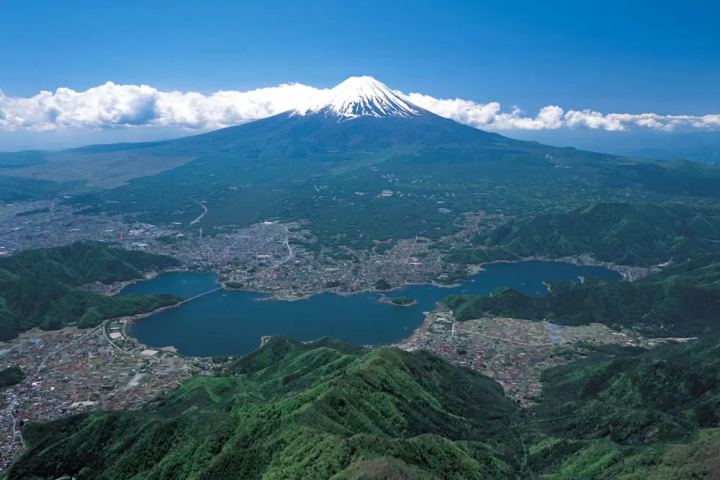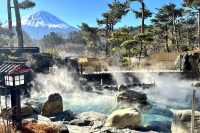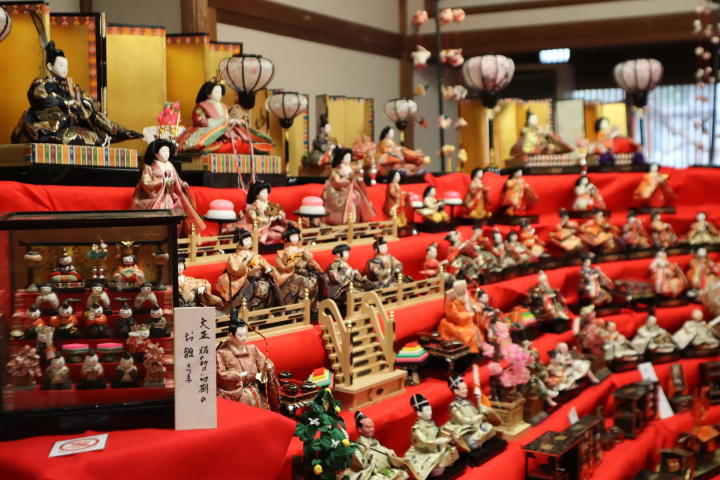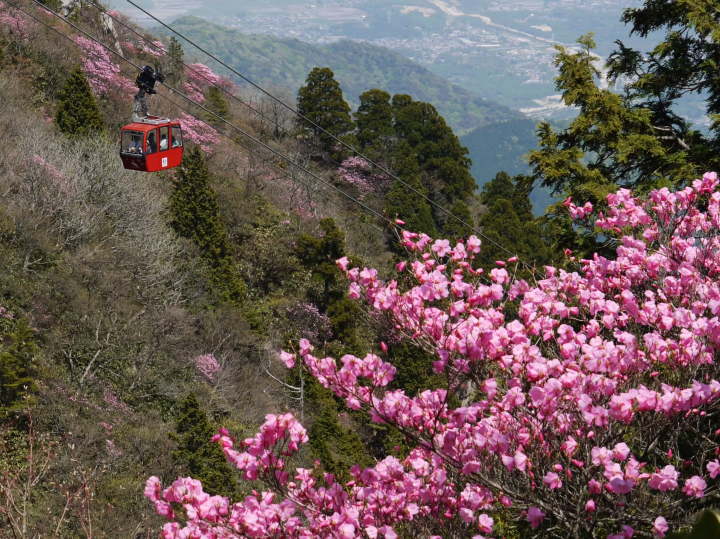Mt. Fuji 5th Station: Complete Guide to Access, Best Spots, Itinerary and More

Fuji Subaru Line 5th Station is a recommended tourist spot for those who want to enjoy Mount Fuji casually without climbing it. You can fully enjoy the charms of Mount Fuji, including spectacular views, gourmet, and souvenir hunting. In this article, we will introduce the highlights and basic information on the Yoshida Trail side along with a itinerary.
-
Table of Contents
- What is "Mount Fuji 5th Station"?
- Must-See Spots, Spectacular Views and Gourmet Food
- Temperature and Clothing Tips
- Access Guide to Mt. Fuji 5th Station by Transportation Methods
- Planning to Climb Mt. Fuji? Why You Should Book Your Permit Early
- 2-Day Itinerary: Enjoying Mt. Fuji and Lake Kawaguchiko
- Tourist Taxis for Easy Sightseeing: Convenient Ways to Explore the Area
- Make the Most of Your Mt. Fuji 5th Station Trip
What is "Mount Fuji 5th Station"?
Mount Fuji 5th Station is a tourist spot located at an altitude of about 2,000m, and is popular not only with climbers but also with those who want to casually enjoy the spectacular views of Mount Fuji. It is also recommended for those who want to experience the charm of Mount Fuji without climbing, families with children, and those who are not confident in their physical strength.
From the fifth station of Mount Fuji, you can get a close-up view of the majestic Mount Fuji, and there are plenty of mountain hut-style rest houses, souvenir shops, restaurants, and more, so you can experience the charms of Mount Fuji in a wide range. With nature changing with the seasons, you can enjoy different scenery every season.
In this article, we will introduce in detail the points you should know in advance to enjoy Mount Fuji 5th Station. Please refer to it if you are planning a trip to Mount Fuji.
Must-See Spots, Spectacular Views and Gourmet Food
At the fifth station of Mount Fuji, there are Toyotomi of places to enjoy even if you don't climb the mountain, such as spots with spectacular views, historic shrines, and hiking trails where you can easily get in touch with nature. Here we will introduce some of the most popular tourist spots.
Visit Mount Mount Fuji Komitake Shrine

Fujisam Komitake Shrine is located at the fifth station. Komitake is the mountain that became the foundation of Mount Fuji , and the current Mount Fuji was formed through repeated eruptions of Komitake and Old Fuji . Mount Fuji Komitake Shrine, located at the fifth station of Mount Fuji , was established in 937 (Shohei 7) on the summit of Mt. Komitake (the fifth station of Mt. Fuji), a sacred place for mountain worship, and has long been visited by many worshippers and ascetics as a sacred place of worship. It is said to bring good fortune in traffic safety, matchmaking, and long life, so be sure to visit the shrine when you visit the fifth station.
Enjoy Nature at its Fullest! Hike around Oniwa, Okuniwa and Onachodo

You can enjoy hiking on the trekking course that leads from the Fuji Subaru Line 5th Station along the Onchu-do trail to the Oniwa (Natural park) and Okuniwa (Natural park). On the Onchu-do trail, you can see rhododendrons from mid-June to late July, cowberries from July to August, and magnificent views of Mount Fuji and larch trees during the autumn foliage season from early to late October. There are also great viewing points where you can see the peak of Mt. Fuji and Lake Lake Kawaguchiko and Lake Yamanakako below.
Rhododendron viewing time: mid-July to early August
Best time to see autumn leaves: early to late October
The " Okuniwa (Natural park) " offers views of the autumn leaves of larch trees and Mount Fuji.

"Okuniwa", located 2km before the parking lot at Mount Fuji 5th Station, is a spot you definitely can't miss during the autumn foliage season. It's about a 10-minute walk to a scenic spot where you can see Mount Fuji and the autumn leaves of the larch trees. You can walk around the whole area in about an hour and a half.
"Oniwa" offers a view of towering Mount Fuji up close

If you go a little further from the "Okuniwa" parking lot, you will see the hiking trail that leads to "Oniwa ."Oniwa has a slightly steeper than Okuniwa , so we recommend wearing comfortable clothing and shoes that are easy to move in.
Onchu-do, where a variety of Takayama plants bloom

Ochu-do is a footpath that runs horizontally around the fifth and sixth stations of Mount Fuji . You can enjoy casual trekking on the 2.4km stretch from the fifth station of the Fuji Subaru Line on the Yamanashi Prefecture side to Oniwa while taking in the rich nature of Mount Fuji.
A Wide Variety of Gourmet Foods and Souvenirs

Fuji Subaru Line 5th Station is filled with restaurants and shops. Komitake Shop and Mt. Mount Fuji Miharashi, which have a shop on the first floor and a restaurant on the second floor, are worth a visit, as they sell gourmet foods such as soft serve ice cream that can only be found here, as well as original souvenirs. You can also try the very popular Mount Fuji Melon Bread at the mountain hut-style accommodation, Gogoen Rest House!
Temperature and Clothing Tips

Temperature
The fifth station of Mount Fuji is located at an altitude of over 2000m. The temperature drops by about 0.6℃ for every 100m increase in altitude, so the fifth station is about 12℃ lower than the plains. For example, the average temperature in July is about 13 ℃ . This is the same average temperature as April in Tokyo.
The average temperatures from early to late October, when the autumn leaves at the fifth station of Mount Fuji are at their best, are a maximum of 9°C and a minimum of 1.2 °C , so be sure to bring a thick jacket.
Recommended Clothing

The temperature at the 5th Station of Mount Fuji is quite low even in summer. Instead of wearing light clothing such as a short-sleeved shirt, be sure to take measures against the cold, such as carrying a long-sleeved jacket that you can adjust your temperature to. Also, the 5th Station is at a high altitude and is "closer to the sun." The UV rays there are stronger than at the foot of the mountain, so if you are concerned about this, we recommend bringing sunscreen and sunglasses with you and wearing clothes that cover as little skin as possible.
Access Guide to Mt. Fuji 5th Station by Transportation Methods

By Bus
There are two main ways to get to Mount Fuji 5th station from Tokyo by bus. One is to take the express bus bound for Mount Fuji 5th station from Busta Shinjuku. The other is to take a train or express bus to Kawaguchiko Sta. or Mount Fuji Station, then transfer to a Fuji climbing bus to head to the 5th station. If your only purpose is to visit Mount Fuji 5th station, it's easier to take a direct bus. If you want to stop by places around Lake Kawaguchiko or Fujiyoshida, make sure to transfer at a station at the base of the mountain.
By Car, Rental Cars
You can also get to the 5th station of Mount Fuji by private car or rental car. However, please note that restrictions on private cars are implemented during the climbing season from mid-July to late August, and general vehicles will not be able to pass through during this period. Also, to get to the 5th station of the Yoshida route, it takes about an hour from the Chuo Expressway Kawaguchiko IC using the Fuji(toll road).
The Fuji Subaru Line has set operating hours and is not open 24 hours a day, so be sure to check the official website in advance.
How to Access During the Private Car Restriction Period

Fuji Subaru Line will implement private car restrictions to protect the environment and ease traffic congestion from mid-July to late August, when many climbers and tourists are expected to visit. During this period, private cars will not be able to pass through, but that does not mean you cannot go to the fifth station. You can park your car just before the toll gate, just after exiting the Fujiyoshida IC on the Fuji Higashi Lakes Road, and take the shuttle bus from there to the fifth station.
*Please note that you will not be able to enter or exit the Fuji Subaru Line in bad weather or outside of business hours.
Planning to Climb Mt. Fuji? Why You Should Book Your Permit Early

At Mount Fuji , climbing restrictions are in place at all Yamaguchi , including in Shizuoka Prefecture , to prevent quick climbs and overcrowding.
As a result, the entrance gate to the hiking trail at the fifth station will be closed between 2:00 p.m. and 3:00 a.m. the following morning, and hiking will not be possible.
In addition, if the number of climbers on a single day reaches 4,000, access will be restricted and climbing will not be possible. Advance payment and reservations are required to access the mountain.
Toll: 4,000 yen per person (one time)
2-Day Itinerary: Enjoying Mt. Fuji and Lake Kawaguchiko

Itinerary Overview (Time and Destinations)
[Day 1]
9:00 Departure from Tokyo
11:30 Arrive at the fifth station and visit Komitake Shrine
12:00 Lunch at the 5th Station Restaurant
13:00 Hike along the Ochu-do trail
15:00 Buy souvenirs and head down
16:30 Stay overnight at Fuji Midori no Kyuka-mura
[Day 2]
8:30 Depart from Fuji Midori no Kyuka-mura
9:00 Join the Fujikanko Travel Activity Tour
16:00 Fuji Chobo no Yu Yurari Onsen
18:00 Depart from Yamanashi
Detailed Schedule and Highlights
Day 1
9:00: Depart from Tokyo

10:30: Arrive at Lake Kawaguchiko IC on the Chuo Expressway → Fuji Subaru Line

11:30: Arrive at Mount Fuji 5th Station and Mount Otake Shrine

12:00: Lunch at the 5th Station Restaurant

13:00: Hike along the Onchu-do trail

Buy some souvenirs and head down the mountain!
16:30: Arrive at Fuji Midori Holiday Village

Fuji Midori no Kyuka Mura is a large accommodation facility located in a quiet environment surrounded by the rich nature of Mount Fuji. We also offer accommodation plans that include tickets to the adjacent day-trip hot spring facility , Fuji Chobo no Yu Yurari Onsen.

[Day 2]
8:30: Depart from Fuji Midori Holiday Village
9:00: Join the Fujikanko Travel Activity Tour

They offer an English-guided tour, such as the "Zen Meditation Experience with Local Cuisine," where you can experience Japanese culture.
16:00 : Enjoy the hot springs at Fuji Chobo no Yu Yurari Onsen
Fuji Chobo no Yu Yurari Onsen is a day-trip hot spring facility where you can enjoy a total of 16 types of baths, including two open-air baths with outstanding views of Mount Fuji, as well as carbonated springs and cave baths.
1 8:00: Depart Yamanashi for Tokyo !
Tourist Taxis for Easy Sightseeing: Convenient Ways to Explore the Area

Fujikanko Travel , located in front of Lake Kawaguchiko Station, accepts reservations for sightseeing taxis that take you to the 5th Station of Mount Fuji and famous spots at the Mount Fuji. You can also add an English guide as an option! You can also create a special sightseeing taxi plan by consulting in advance about the places you want to visit.
Make the Most of Your Mt. Fuji 5th Station Trip
The 5th Station of Mount Fuji is not just a place for hiking, but also a tourist spot where you can enjoy a wide range of activities such as spectacular views, gourmet food, and souvenir hunting. Plan a comfortable and fulfilling trip by using the itinerary and sightseeing taxi introduced here. You can enjoy the Mount Fuji area even more by visiting the sightseeing spots around Lake Kawaguchiko .
We will provide fascinating information about the northern foothills of Mount Fuji in Yamanashi Prefecture, including Japan's world-renowned symbol, Mount Fuji, and Mount Fuji Component Parts of World Heritage . The Fuji Five Lakes region, located at the Mount Fuji in Yamanashi Prefecture , is located on the north side of Mount Fuji and is a region rich in nature, including lakes such as Lake Motosuko , Lake Saiko Lake Shojiko , Lake Kawaguchiko, Lake Kawaguchi, and Lake Yamanakako . A total of 25 sites are registered as Component Parts of World Heritage of the World Heritage Site Mount Fuji , including historic shrines such as Kitaguchi Hongu Fuji Sengen-jinja Shrine, Kawaguchi Asama-jinja Shrine, and Fuji Omuro Sengen Fuji Omuro Sengen-jinja Shrine , as well as Component Parts of World Heritage on the Shizuoka side such as the natural monument Oshino Hakkai. The foot of Mount Fuji, which is visited by many tourists, is home to many tourist spots such as Arakurayama Sengen Park, where you can enjoy the combination of Mt. Mount Fuji, cherry blossoms, and the five-story pagoda "Chureito" in spring, Oishi Park, which is the main venue for the Kawaguchiko Herb Festival in summer, the Lake Kawaguchiko Momiji Corridor, where you can view Mount Fuji Mount Fuji and autumn leaves in autumn, and Fujiten Snow Resort, where you can enjoy skiing and snowboarding with the spectacular Mt. Fuji right in front of you in winter. In recent years, an increasing number of people are enjoying activities such as trekking, cycling, and camping in the natural surroundings of Mount Fuji . Our company is based in Lake Kawaguchiko , in the northern foothills of Fuji , and operates Fuji Subaru Land, a theme park that makes use of the natural beauty of Mount Fuji Mount Fuji ; Fujizakura Heights Beer, the world's best craft beer made using Fujizakura Life Water, a natural spring from Mount Fuji; Fuji Chobo no Yu Yurari Onsen is pumped up from 1,000 meters underground at the foot of Mount Mount Fuji; and Fujiten Snow Resort, where you can enjoy skiing, snowboarding, and other snow activities in front of the dynamic Mount Fuji. We will clearly communicate the charm of Mount Fuji , which changes with the seasons, from here at Lake Kawaguchiko, at the Mount Fuji .
The contents on this page may partially contain automatic translation.


![[Yamanashi Prefecture] Accommodation facility “Fuji Midori Kyukamura” in Narusawa Village at the foot of Mt. Fuji](https://resources.matcha-jp.com/resize/200x2000/2023/08/14-143176.webp)



























![[During Your Kumano Trip] Cape Shionomisaki Tourist Tower](https://resources.matcha-jp.com/resize/720x2000/2025/11/05-249097.webp)

![[Kagoshima] Enjoy Minamisatsuma City to the Fullest! A Guide to the Scenic Beauty and Culture of Five Areas](https://resources.matcha-jp.com/resize/720x2000/2026/02/15-258755.webp)

![[Yufuin]Yufuin in 100 Minutes: Quick Access Guide](https://resources.matcha-jp.com/resize/720x2000/2026/02/15-258738.webp)